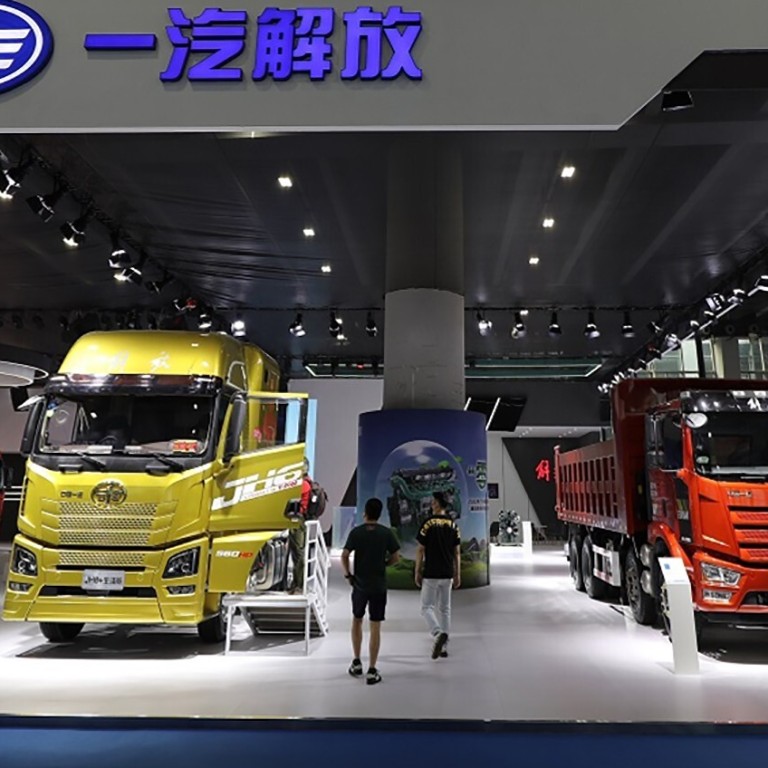
State-owned FAW Jiefang pledges to invest US$4.6 billion building electric vehicle research bases, zero carbon-emissions factory
- The commercial arm of China’s oldest carmaker said it aims to deliver half a million new-energy vehicles a year by 2035 – 70 per cent of its total sales
- Move will ‘reinforce our push for a leading position in the pure-electric, plug-in hybrid and fuel-cell technologies,’ says chairman Hu Hanjin
FAW Jiefang, the commercial unit of China’s oldest carmaker, has upped the ante in the eco-friendly vehicle segment by pledging to spend 30 billion yuan (US$4.6 billion) on research facilities across four countries and a base for fuel-cell vehicle systems.
The company said it would deliver 120,000 green vehicles in 2025, a fifth of its total sales, jumping to 320,000 units in 2030, which would account for half of its sales by that time.
Its parent, state-owned FAW Group, one of the mainland’s three largest domestic automotive companies, is the local partner of Toyota and Volkswagen.
Its iconic Red Flag car is an instantly recognisable symbol of Chinese Communist Party might.
FAW Jiefang said 20 billion yuan would be allocated for building research and development bases across nine cities in four countries, but did not specify which ones. It did not provide details about the emission-free plant either.
The company also announced it would invest another 10 billion yuan to create a production base focusing on fuel-cell vehicles and systems.
China is the world’s largest electric vehicle market with sales expected to more than double from a year ago to top 2.4 million this year.
State-owned car giants including SAIC Motor and Dongfeng Motor are also looking to strengthen their research and manufacturing capabilities in the green vehicle segment by setting up independent units with multi-billion yuan investments.
In June, Shanghai-based SAIC said it would spin off a unit focusing on hydrogen fuel-cell technologies, and list it on a stock exchange to rev up its diversification into alternative-fuel vehicles.
Dongfeng Motor, based in Wuhan in central China’s Hubei province, launched a new brand called Voyah as it joined the fray against domestic and foreign rivals in the electric vehicle segment.
In 2018, the Chinese government lined up a record credit line of 1.015 trillion yuan for FAW Group, an unprecedented level of financial support for a state-owned enterprise.

